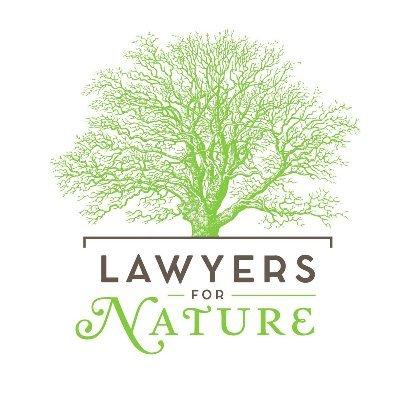
Lawyers for Nature is a UK-based community interest company (CIC) founded by barrister and environmental activist Paul Powlesland. Its central mission is to pioneer and advance the Rights of Nature movement, advocating for a fundamental shift in the legal system from an anthropocentric (human-centered) view to an ecocentric one. Rather than treating nature as mere property to be exploited, Lawyers for Nature works to establish that ecosystems, species, and natural entities like rivers and forests have their own legal rights and a standing to be represented in a court of law. This philosophy is rooted in the belief that the health and well-being of humanity are inextricably linked to the health of Mother Earth.
To fulfill its mission, the organization operates across three main areas: legal advocacy and campaigns, corporate consultancy, and public education. Each of these pillars is designed to create a multi-pronged approach to change—tackling legal frameworks from the inside, influencing corporate behavior, and building a grassroots movement to support their work.
The driving force behind Lawyers for Nature is the Rights of Nature doctrine. This is not a new idea, but one with deep roots in Indigenous legal traditions that have historically recognized the living, spiritual, and interconnected nature of the non-human world. In modern legal systems, however, it is a revolutionary concept. Lawyers for Nature argues that if corporations—which are abstract legal entities—can have legal personhood and rights, then so too can a river or a forest. This would grant nature the right to exist, flourish, regenerate, and be free from harm. By establishing legal personhood, a river could have a human guardian appointed to represent its interests in court, much like a lawyer represents a person or a company.
The organization's founder, Paul Powlesland, became convinced of this fundamental need after his experiences representing environmental activists. In cases such as the fight to save trees in Sheffield, he found that existing environmental laws were often insufficient to protect nature and, in some instances, even worked to criminalize those who were trying to defend it. This experience led him to the conclusion that a more profound shift was needed, not just in how environmental law is applied, but in the very philosophical foundations of the law itself. Powlesland describes his work as a two-fold approach: fighting for nature within the existing legal framework while also campaigning to change that framework entirely.
Lawyers for Nature has been involved in several high-profile and creative projects that exemplify its unique approach. One of its most notable campaigns is the Nature on the Board initiative. This groundbreaking project seeks to embed the voice of nature directly into corporate governance structures. The first company to take on this concept was the UK-based cruelty-free cosmetics company, Faith in Nature. Under the legal counsel of Lawyers for Nature, the company appointed a "Nature Director" to its board. This director's role is not to simply advise, but to vote on behalf of Nature's interests, ensuring that every corporate decision, from product development to supply chain management, is scrutinized from an ecological perspective. This was a historic first, giving Nature a formal voice and vote within a human-made system. The success of this project has led other businesses, like House of Hackney, to follow suit, appointing a director to represent "Nature and the Voice of Future Generations."
Beyond corporate consultancy, the organization is deeply involved in a variety of legal advocacy and campaign work. Paul Powlesland has personally represented activists in court, defending their right to protest and protecting nature using existing laws where possible. He has also been a key figure in drafting legal arguments and submissions to various government bodies and assemblies, such as a submission to the Irish Citizens' Assembly on Biodiversity Loss, advocating for the legal rights of nature. These efforts are part of a broader strategy to influence policy and push the legal system to evolve.
One of Powlesland's most personal and well-known campaigns is his work as a self-appointed "nature guardian" for the River Roding in East London, where he lives on a narrowboat. This hands-on, community-based approach to environmentalism involves not only legal action against polluters but also direct action like litter picking, tree planting, and restoring river paths. This work demonstrates the organization's philosophy in practice: that effective environmental change requires a combination of high-level legal and political advocacy with local, grassroots action.
Lawyers for Nature is not just a law firm; it is also a hub for education and research. As a CIC, it reinvests its profits into its core mission, including creating public resources, toolkits, and publications. The organization offers consultancy and training services to businesses and individuals interested in learning more about the Rights of Nature. They also have a presence on various media platforms, with their team available for talks, workshops, and interviews to spread the word about their work and the philosophical underpinnings of the movement.
The vision for the future is ambitious. Lawyers for Nature hopes to see a proliferation of its work, with more lawyers dedicating their time to representing nature, more companies embedding ecocentric principles into their governance, and, ultimately, a widespread adoption of the Rights of Nature into legal systems across the UK and beyond. They draw inspiration from international examples, such as Ecuador's constitution, which grants Nature the "right to integral respect for its existence," and the Magpie River in Canada, which has been granted nine legal rights. These global examples serve as proof of concept, demonstrating that a legal system can be built to protect and regenerate the natural world.
The work of Lawyers for Nature represents a growing global movement that challenges the fundamental assumptions of modern law and governance. By providing legal expertise, strategic advice, and a powerful voice for the non-human world, they are at the forefront of a legal revolution aimed at securing a more sustainable and just future for both humanity and the rest of life on Earth.